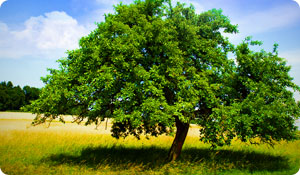
Do you feel like your allergy symptoms are getting worse every year? If you find yourself increasingly dealing with sneezing, coughing, itchy nose and throat, and all of those other miseries that go along with seasonal hay fever, climate change effects could be to blame.
Climate Change Effects and Allergies
You probably don't think much about how the evolving state of the environment affects you directly, but if your allergies are getting more severe, you may be coping with the changes on a daily basis without even recognizing the connection. In fact, a report released by the National Wildlife Foundation in conjunction with the Asthma and Allergy Foundation of America (AAFA) in the spring of 2010 reveals that global warming is creating changes to the wildlife and the atmosphere that could be causing allergy seasons to start earlier each year, last longer, and even result in some of the most common allergy triggers to be much more prevalent in the air.
What You Should Know
First, scientists explain that pollution in the atmosphere is causing temperatures to warm up a little bit more each year. As a result, spring-like weather has been coming increasingly early in certain parts of the country, while pollen-producing plants are also growing more quickly, adding more allergens into the air. In addition, some of the higher allergen-producing trees and plants are more likely to grow in place of safer foliage that doesn't trigger symptoms. This can be even more of a problem for allergy sufferers. In addition, increasingly high levels of carbon dioxide in the air are also causing ragweed to grow faster, too, so people allergic to this culprit will need to beware.
Global Climate Change Effects are Far Reaching
Of course these climate change effects aren't just limited to the United States. A study on global climate change that looked specifically at parts of Italy found similar results. In this effort, researchers from the Allergy and Respiratory Disease Clinic in Genoa, Italy discovered that pollen seasons in this region are increasing in length while this trigger is also growing in prevalence.
More Research is Needed
While the problem of worsening allergy conditions in the U.S. and throughout the rest of the world is all too clear, though, what to do about this dilemma is much less straightforward.
In fact, researchers still need to explore the issue more thoroughly and determine, in addition to worsening allergy symptoms among regular sufferers, if the changes can also be sparking an onset of allergies in people who otherwise wouldn't have had them.
Regardless of the answer, though, if you suffer from allergies, the latest data is certainly cause for alarm. Of course you can't change the course of the world on your own, but you can do your part to minimize pollution and help care for the environment in order to reduce changes that can be harmful to your health.
You can also talk to your doctor or allergist to find out how best to manage your allergy symptoms. Often the most effective strategy includes a combination of prevention and treatment methods. For instance, you'll need to take steps to avoiding your triggers, such as staying indoors on high pollen days, keeping your windows closed and running your air conditioner to help filter triggers from your air, and washing your hands and face often to remove any allergens that linger there.
Your doctor can also prescribe some of the latest allergy medications that can provide relief from many of your bothersome symptoms and can help you to effectively manage your condition, both now and in coming years.
Sources:
American Academy of Allergy, Asthma and Immunology
http://www.aaaai.org/patients/allergy_asthma_issues/2010/spring/springissue10.pdf





